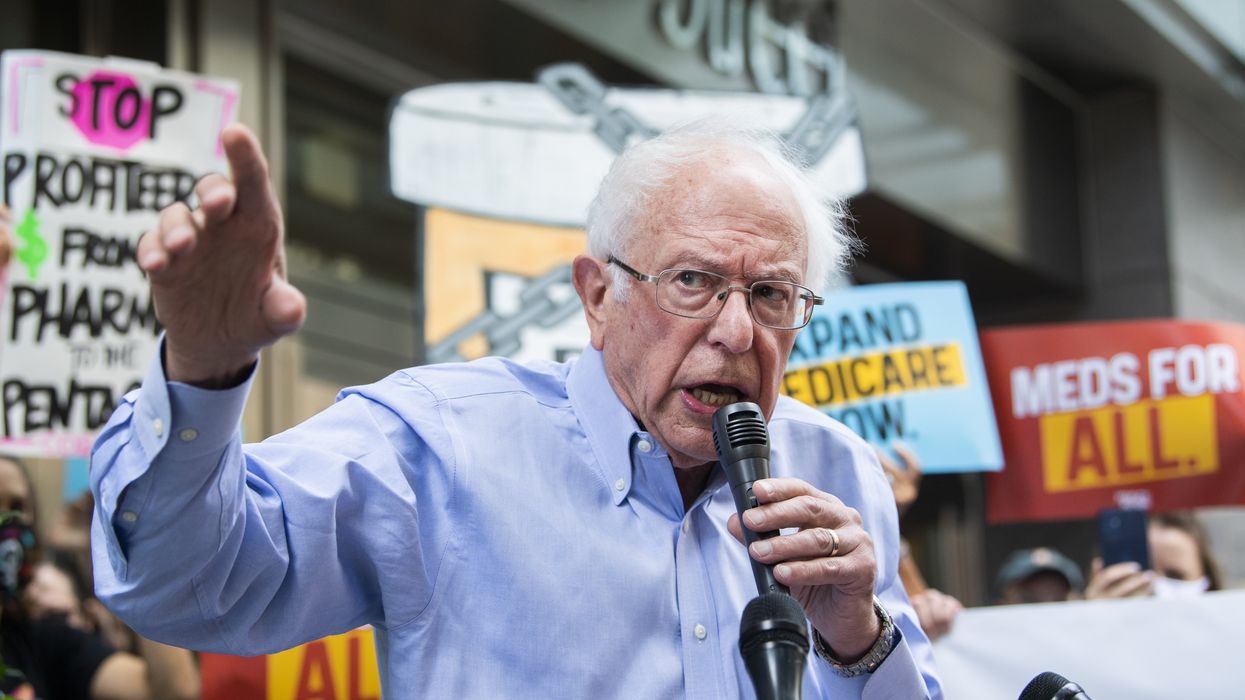Unlike his predecessor, whose ouster came as she tried to push back against RFK's anti-vaccine agenda, O'Neill fits snugly into the secretary's efforts to restrict access to the Covid-19 vaccine, and potentially ban it outright, as the Daily Beast reported earlier this week.
"A tech investor with no medical or public health background and extremist libertarian views, Jim O'Neill was unfit for the number two position at HHS and manifestly unqualified to lead the CDC," said Dr. Robert Steinbrook, director of Public Citizen's health research group, on Friday.
Just as Kennedy did during his confirmation hearings, O'Neill insisted he was "pro-vaccine," noting that he was "an adviser to a vaccine company." However, this is belied by his record on the subject.
He has championed unproven cures like ivermectin, hydroxychloroquine, and vitamin D supplements to protect against Covid-19, and has accused the CDC under the administration of former President Joe Biden of downplaying the vaccine's dangers while railing against mandates.
O'Neill has also praised Kennedy's response to the measles outbreak that swept across the US earlier this year, during which the secretary downplayed the severity and cast unfounded doubt on the effectiveness and safety of the measles vaccine that had virtually eradicated the disease before vaccination rates began to decline.
"Unlike Susan Monarez," Steinbrook said, "O'Neill is likely to rubber-stamp dangerous vaccine recommendations from HHS Secretary Kennedy's handpicked appointees to the Advisory Committee on Immunization Practices and obey orders to fire CDC public health experts with scientific integrity."
O'Neill melds medical crankery with a Thielite strain of anarcho-libertarianism. He has served on the board of the Seasteading Institute, an organization founded by Patri Friedman, the grandson of the right-wing economist Milton Friedman, who advocates for corporations like Apple and Google to form their own floating cities at sea, which would be governed as corporate "dictatorships" free from the constraints of democratic governance.
That anti-government ethos extends to his views on the healthcare system, which O'Neill says is flawed not because of the rampant profiteering of the private companies that run it, but because it is supposedly not "free market" enough.
In 2014, he advocated for the Food and Drug Administration (FDA) to begin approving drugs for the market without conducting clinical trials to determine their effectiveness. "Let people start using them, at their own risk," he argued, "Let's prove efficacy after they've been legalized."
He has also argued for the government to allow people to sell their own internal organs. This process often results in deteriorating health for the disproportionately poor people who partake.
While working at HHS under the administration of former President George W. Bush, O'Neill also opposed the FDA regulation of companies that use algorithms to perform laboratory tests.
At the time, he was focused on DNA testing products like 23andMe, but a report from the consumer watchdog group Public Citizen says that "a decade after he made this remark, it's clear how dangerous such a concept is," noting that "with the development and proliferation of artificial intelligence, algorithms are omnipresent in the practice of medicine, including in diagnostic tools, medical devices, AI assistants to doctors, and personalized medicine."
In addition to Thiel's ideology, he reportedly brings several conflicts of interest to the CDC director job from his time working at Thiel's venture capital firm.
Accountable.US reported Friday that O'Neill "took money from, helped incubate, or was otherwise linked to at least eight medical industry startups with direct business before the department he could help run."
These include firms he advised, like the pharmaceutical company ADvantage Therapeutics or the National Institutes of Health grantee Rational Vaccines, which manufactures herpes drugs.
It also includes four companies seeded by his Thiel-affiliated venture capital firm Breakout Labs, some of which have received government funding or have products awaiting FDA approval.
Though O'Neill agreed to divest from some of these companies and abstain from involvement in decision-making with them as part of his ethics agreement, the report notes that "he did not promise to abstain from decisions involving these companies for the duration of his term, or to abstain from doing business with them after departing HHS."
"O'Neill would be in a prime position to ensure favorable outcomes for several medical industry startups he's been financially linked to that have direct business before HHS and the CDC," said Accountable.US executive director Tony Carrk. "How can American patients be sure that proper vetting of these companies would take place on O'Neill's watch and that public health will be a higher priority over the profits of his former clients?"
Though Steinbrook describes O'Neill as "manifestly unqualified" for the position, he said, "No credible public health authority is likely to work for Kennedy, who is dictating the agency's decisions based on whim, not science."
"The only path forward," Steinbrook said, "is for Kennedy to go, which Congress, professional organizations, medical journals, and the public should demand."




